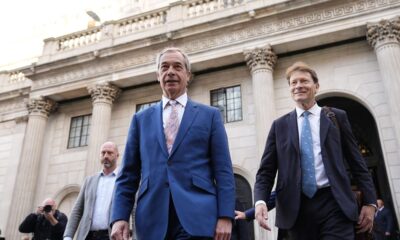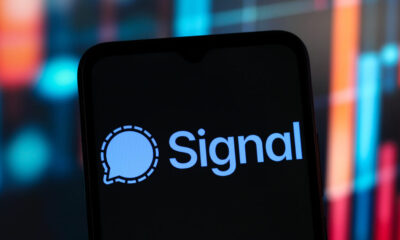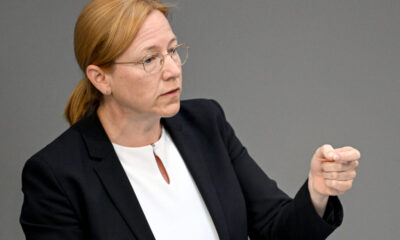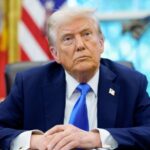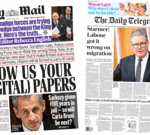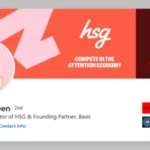Politics
Escalating trouble – Trump takes on the UN and Europe

Read more on post.
Listen on
Trump says Ukraine can win — but should Europe believe him?
At a hectic U.N. General Assembly in New York, U.S. President Donald Trump stunned world leaders with a dramatic rhetorical reversal on the war in Ukraine, mocking Russia as a “paper tiger” and urging NATO allies to shoot down Russian aircraft. Host Sarah Wheaton unpacks what this means with POLITICO’s Clea Caulcutt and Nick Vinocur, reporting from Manhattan — and asks whether Europe can trust Trump’s new tune.
Then we turn to a different transatlantic question: Europe’s own defense. Sarah sits down with Latvian President Edgars Rinkēvičs and Austrian President Alexander Van der Bellen for candid reflections on NATO, neutrality and how their countries see the threat from Russia.
It’s a week of motorcade gridlock, geopolitical pivots and presidential soul-searching.
EU Affairs
Farage takes on the Bank of England with blast against QE legacy
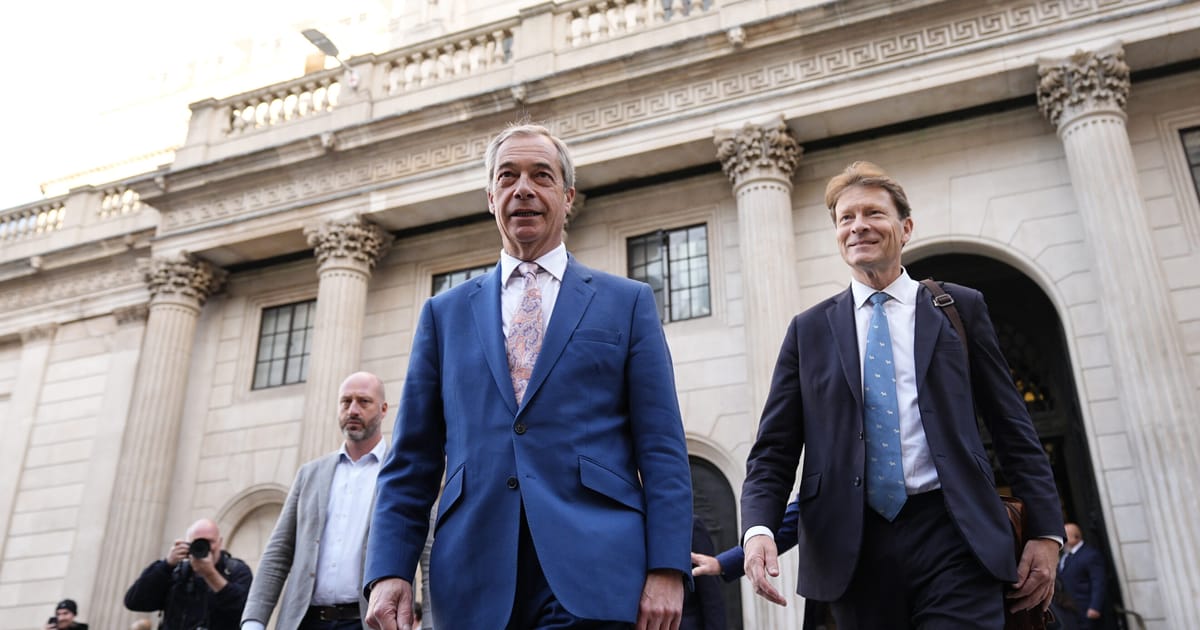
Read more on post.
The Reform duo also urged the Bank to stop the active selling of the gilts it bought during the QE period, something that several analysts and investors have argued is putting unnecessary upward pressure on the government’s borrowing costs. Tice told POLITICO on Thursday that stopping gilt sales alone could have taken around £1.5 billion off the government’s bill for debt interest this year. The Bank argues that the taxpayer wouldn’t end up paying any less in the long run, though.
Reform is now seeking a full parliamentary debate on ‘quantitative tightening’, or QT, when MPs return from their recess, something he may get in the second half of next month if the Leader of the House of Commons is sympathetic. “It’s much more powerful as a debate in government time, as opposed to a backbench business debate,” Tice argued.
The political argument is simple. “If Parliament via the Chancellor of the Exchequer gave a different steer to the Bank of England, this could significantly reduce the need for tax rises at the Budget,” Tice said in a statement released after the meeting.
Reeves can ill afford to ignore anything that will raise money at a time when sluggish growth and productivity and constant increases in spending have made it all but impossible for her to stick to her own self-defined fiscal rule. And left-leaning think-tanks such as the Institute for Public Policy Research and Positive Money have already come to much the same conclusions.
Yet Reform’s high-volume handling of a meeting that the Bank styled as a routine meeting with elected politicians represents something of a break with convention. Since Tony Blair’s government granted the Bank independence in 1997, party leaders have refrained from appearing to give instruction to the Bank on how to conduct monetary policy.
Tice, however, in comments to POLITICO, argued that the issue is essentially a fiscal one, since the losses incurred by the Bank through QT have to be picked up by the taxpayer. “Parliament has failed in its duty to give the Bank more direction and support in this area,” he said. “It’s left the Bank to make its own decision and sort of … swing in the wind.”
EU Affairs
China offers unlikely glimmer of hope in fight against plastic pollution

Read more on post.
While China is the world’s top consumer and producer of plastic, the country has also ushered in several restrictions on the production, sale and consumption of single-use plastics in a bid to stem a national pollution crisis. This has made it more aligned with high-ambition countries than some other major plastic producers.
Observers also see the country looking to expand its global influence via the U.N. — especially in the wake of the U.S. retreat from multilateralism. “We should firmly safeguard the status and authority of the U.N., and ensure its irreplaceable, key role in global governance,” President Xi Jinping said in a speech at a meeting of Asian leaders near Beijing on Sept. 1, attended by Russian President Vladimir Putin and Indian Prime Minister Narendra Modi.
“My sense is that, of course, they’re also seeing that space opening, generally around environment,” said David Azoulay of the Center for International Environmental Law. “And the U.S. retreating creates a vacuum that China will probably want to fill in their own way.”
That could work out well for high-ambition countries. China is an “important partner for the EU” in the talks, European Environment Commissioner Jessika Roswall told POLITICO during the Geneva negotiations.
“Our strategy since Busan has always been to break China away from Saudi [Arabia] and the U.S.,” said one negotiator from a country within the High Ambition Coalition, granted anonymity to discuss closed-door talks.
With China on board, they added, the assumption is that other major players including Russia and India, as well as Southeast Asian countries, will “become more comfortable” with a comprehensive plastic treaty.
Politics
Deleting texts to save space, Ursula? ‘It’s not the 1990s.’
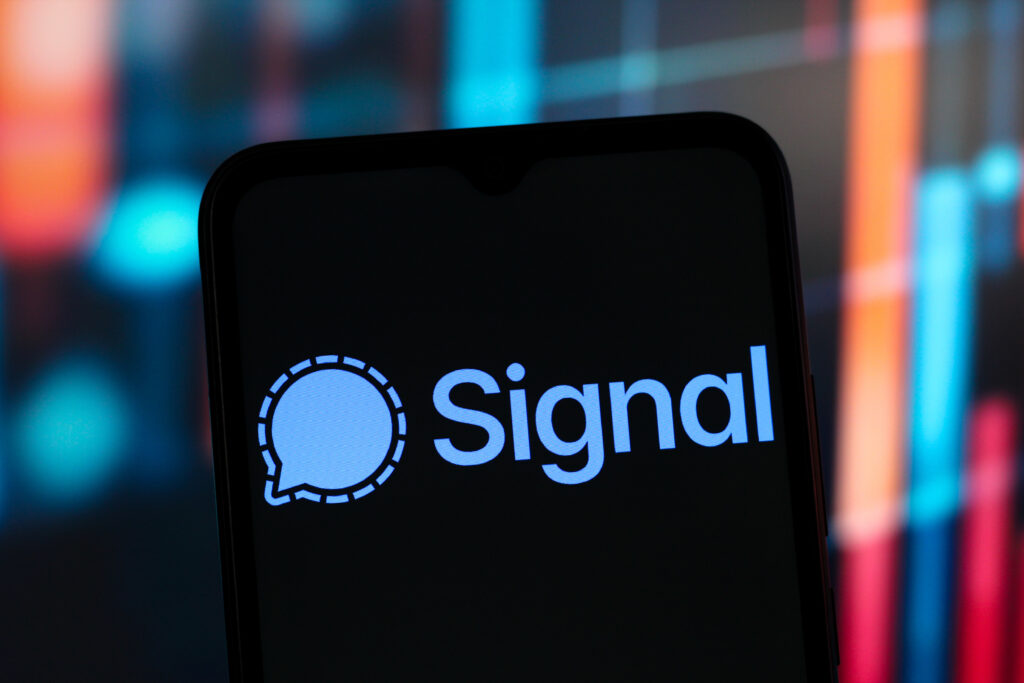
Read more on post.
BRUSSELS — The president of the European Commission auto-deletes messages from her phone in part to save storage space, the EU executive said this week.
Tech experts have but one question: Really?
Deleting messages to save space “sounds cute but also hard to believe. Let’s not be silly here, it’s not the 1990s,” said Lukasz Olejnik, senior research fellow at King’s College London and a cybersecurity expert.
“A text message barely takes any room on a modern phone. Like, you would need to get hundreds of thousands of text messages for it to actually make a difference,” Belgian ethical hacker Inti De Ceukelaire said, calling the Commission’s explanation “a non-argument.”
“Why doesn’t she change to a phone with more storage?” asked Francisco Jeronimo, vice president for data and analytics at technology market research firm IDC in Europe.
Ursula von der Leyen is in the hot seat over a text message she received from French President Emmanuel Macron last year urging her to block the EU-Mercosur trade deal, as first reported by POLITICO. The message was subsequently deleted from von der Leyen’s phone, the Commission said in response to an access to documents request filed by Follow the Money reporter Alexander Fanta.
On Wednesday Commission spokesperson Olof Gill told reporters: “The messages are auto-deleted after a while, just for space reasons.” He jokingly added: “Otherwise, the phone would go on fire.”
Another spokesperson, Balazs Ujvari, added it also helped prevent security breaches, but doubled down on the idea that it was a means of saving space: “On the one hand, it reduces the risk of leaks and security breaches, which is of course an important factor … And also, it’s a question of space on the phone, so, effective use of a mobile device.”
To be sure, many Europeans have struggled with overloaded phone storage. But for most it’s a matter of home videos and reams of family pictures that are clogging devices.
“Messages take up a lot of space if we are talking about videos, voice recordings,” IDC’s Jeronimo said, whereas text-based messages “take nearly nothing from the storage.”
The Commission told its staff in 2020 to start using Signal, an end-to-end-encrypted messaging app, in a push to increase the security of its communications. The institution recommended using the app’s disappearing messages functionality in a 2022 guidance called “Checklist to Make Your Signal Safer.”
For security purposes it makes sense, Jeronimo said. “If someone like [von der Leyen] loses her phone, or if the phone is hacked … there’s a very high risk” that her communications will be compromised.
But the Macron text again trains the spotlight on the EU executive’s policies regarding keeping a public record of its leader’s communications, following a scandal dubbed “Pfizergate” in which von der Leyen’s text exchanges with Pfizer CEO Albert Bourla over Covid vaccine contracts were never archived.
The European Ombudsman continues to investigate Pfizergate, and this week announced it had opened an investigation into last year’s text from Macron.
According to Olejnik, “the truth is that [auto-deleting messages] is great for security, not so [much] for public transparency or accountability.”
Gerardo Fortuna contributed reporting.
-
Culture3 days ago
Taylor Swift’s new cinema outing generates more than €12million in just 24 hours
-
Politics3 days ago
European Parliament snubs Orbán with vote to shield Italian MEP from Hungarian arrest
-
Health3 days ago
EU renews support for WHO’s Universal Health Coverage Partnership
-
Culture2 weeks ago
Life, loss, fame & family – the IFI Documentary Festival in focus
-
Culture3 days ago
Twilight at 20: the many afterlives of Stephenie Meyer’s vampires
-
Environment6 days ago
Key oceans treaty crosses threshold to come into force
-
Culture2 months ago
Fatal, flashy and indecent – the movies of Adrian Lyne revisited
-
Culture1 week ago
Farewell, Sundance – how Robert Redford changed cinema forever




